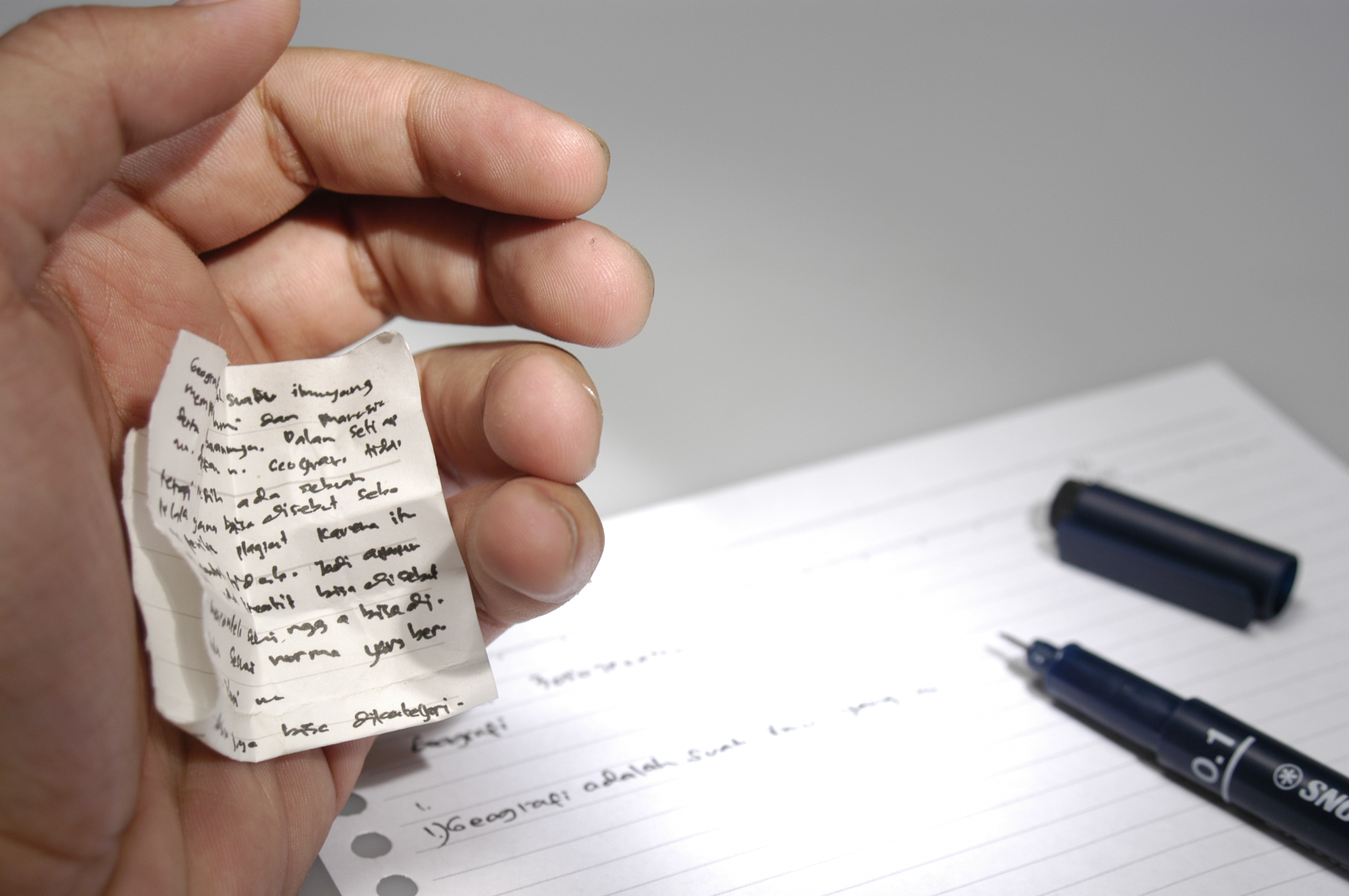
When a student gets to high school, they most often feel the pressure that comes with moving into harder levels of work, which in turn causes stress. In an attempt to keep up with the immense workloads, students turn to the one thing that can ruin their academic careers: cheating. There is a multitude of reasons that a student will cheat. Students could cheat because they have too much work to do, or because they are stressed about a class, or simply because they didn’t want to do the work. Often times, students will cheat because they feel the pressure to get the highest grades, or because they want to impress their friends. Whatever the case is, cheating has severe consequences. At AISG, cheating, or academic dishonesty, is highly frowned upon and enforced against.
The AISG HS Handbook defines academic honesty as “a set of values and skills that promote personal integrity and good practice in teaching, learning, and assessment”, and any infraction of this is considered academic dishonesty. Examples of academic dishonesty are plagiarism, collusion, duplication of work, and unauthorized resubmission of work. The consequences of committing academic honesty can range from having to redo the assignment with a maximum grade of C to being suspended from school. If the infraction is repeated, it could go on the student’s permanent transcript, which will be sent to colleges when they apply, therefore affecting their entire academic career.
There are many different types of academic dishonesty. According to the HS Handbook, plagiarism is defined as “the representation of the ideas or work of another person as the student’s own”. This means that anything that was taken from another source, whether directly quoted or paraphrased if the student has made no attempt to cite their work, it is plagiarism. Collusion is defined by the Handbook as “supporting malpractice by another candidate, as in allowing one’s work to be copied or submitted for assessment by another”. This means that if one student allows another to copy or do the assignment for them, they will face consequences. Duplication of work and unauthorized resubmission of work are both self-explanatory. If two students submit the same work for an assignment or resubmit an assignment without explicit permission, they will be accused of academic dishonesty. Academic dishonesty is not limited to written assignments either. Academic honesty can also apply to oral exams. Ms. Barga said that sometimes, students “don’t seem to be aware of the importance of acknowledging others’ words if they come out of their mouths instead of their keyboards.” Often, students don’t cite their work correctly, if at all.
So why do students cheat? If the consequences greatly outweigh the benefits, what is the appeal of academic dishonesty? According to NIU (Northern Illinois University), the leading cause of cheating and academic dishonesty is peer pressure. Students are pressured into giving up their work, sharing answers, and copying from others. At AISG, many students will commit academic dishonesty because they can’t be bothered to do the work or they are too busy with other activities. Sophomore Prerna K said that she thinks “that more people cheat than most would think do.” She said that the main reason she thinks that people cheat is that “they’re worried about not studying enough.” Selina Y. said that she thinks cheating is “horrible” and students should think twice before committing academic dishonesty.
So how can students avoid academic dishonesty? Well, there are many ways. There are a number of plagiarism checkers on the internet in addition to TurnItIn. The BibMe plagiarism checker works very well and even gives grammar suggestions. Grammarly also has a plagiarism checker, but the premium version is needed for this feature. Citing every source, even the ones you don’t use in your paper is a great way to avoid plagiarism. If you cite all of your sources correctly, the risk of plagiarism decreases immensely. Many people use EasyBib and CitationMachine to cite their sources for them.
Academic honesty is something to be taken very seriously. It is important to remember to cite your sources, make good decisions, and be responsible for your work. Academic dishonesty can impact a student’s academic career negatively, and even further, impact the rest of their lives.
*A previous version of this post incorrectly cited EduBirdie as a plagiarism checker. The post has now been updated.
3 thoughts on “Academic Honesty @ AISG”
Sorry, comments are closed.